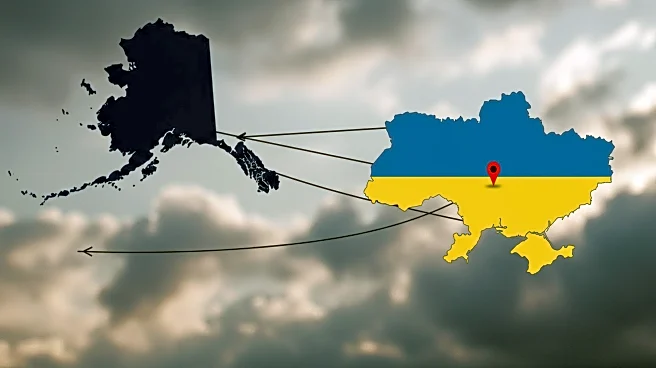What is the story about?
What's Happening?
President Trump and Russian President Vladimir Putin are scheduled to meet in Alaska for a summit, which is being referred to as a 'listening session.' Ukraine, not invited to the summit, faces uncertainty regarding the outcomes of this meeting. Alexander Vindman, former director for European affairs at the U.S. National Security Council, discussed Ukraine's limited options in influencing the Trump administration. Despite having supporters in Congress, Ukraine relies heavily on European allies to maintain U.S. support and prevent concessions to Russia. The meeting could potentially favor Russia, with Putin's extensive experience in negotiations posing a challenge for the U.S.
Why It's Important?
The meeting between President Trump and Putin holds significant implications for U.S.-Ukraine relations and the ongoing conflict with Russia. Ukraine's ability to sustain its defense efforts depends on continued support from the U.S. and Europe. Any concessions made by the Trump administration could weaken Ukraine's position and embolden Russia. The geopolitical dynamics of this summit could impact U.S. foreign policy and its role in international security, with potential shifts in alliances and strategic interests.
What's Next?
President Trump has suggested a follow-up meeting that includes Ukraine, but the feasibility of such a meeting remains uncertain. The outcome of the Alaska summit could influence future diplomatic negotiations and pressure Ukraine to make concessions. Stakeholders will closely monitor the developments and potential shifts in U.S. policy towards Ukraine and Russia.
Beyond the Headlines
The ethical and strategic considerations of the U.S. engaging with Russia in this manner could have long-term implications for international diplomacy. The balance of power in Eastern Europe and the U.S.'s commitment to its allies are at stake, potentially affecting global security and stability.















